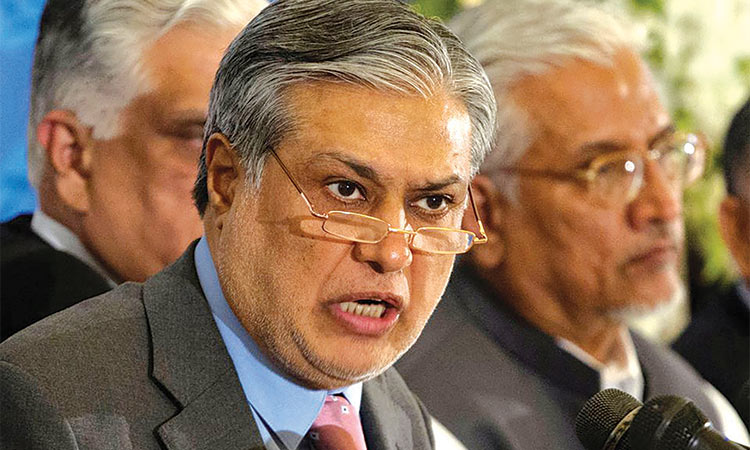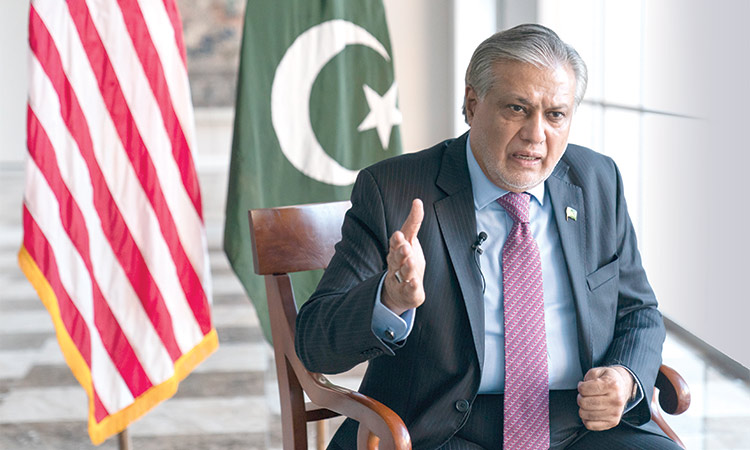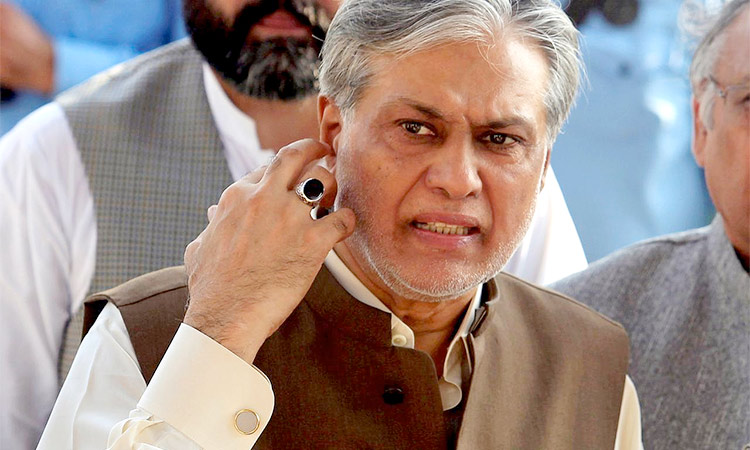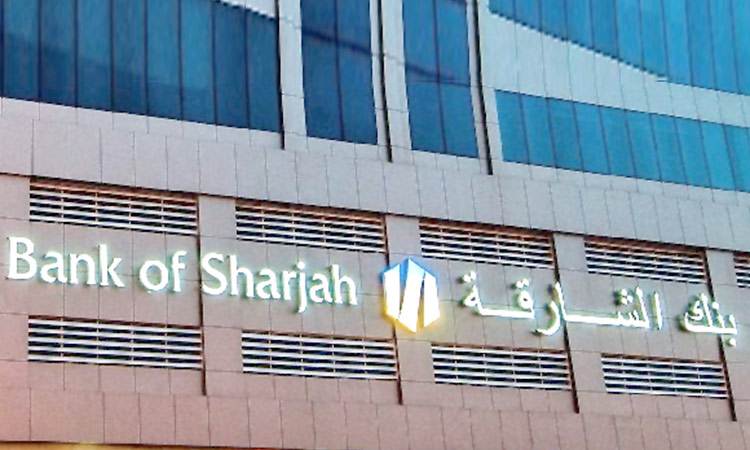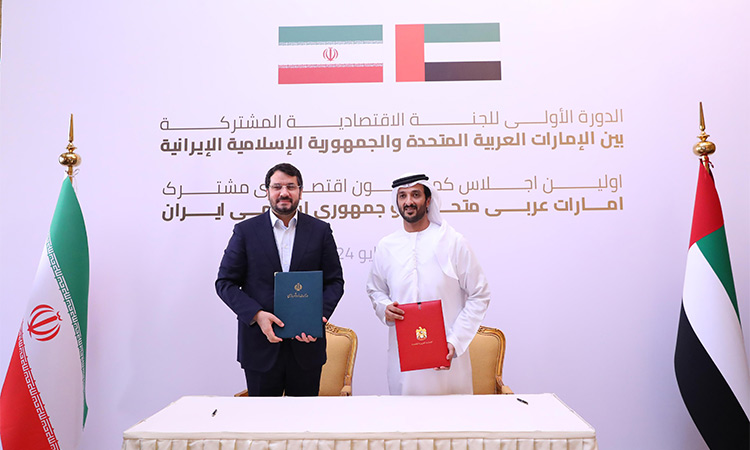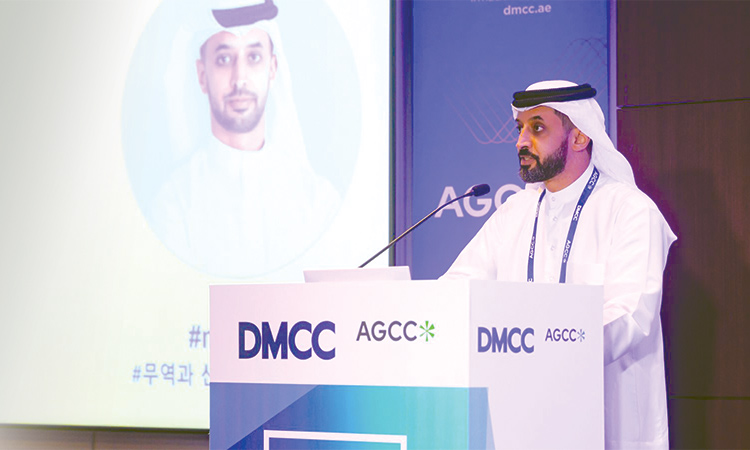Pakistan finance minister presents ‘mini-budget’ in parliament to revive IMF loan
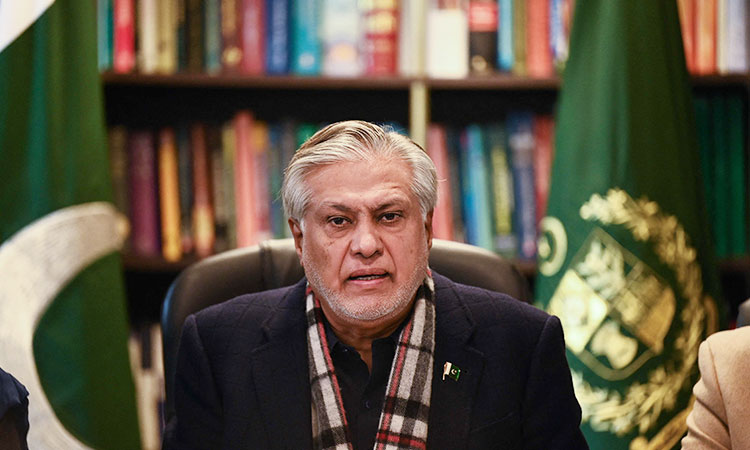
Ishaq Dar speaks during a news conference in Islamabad. File
A crucial tax amendment bill, proposing Rs170 billion ($639 million) taxes, to fulfil the conditions of the International Monetary Fund (IMF) to revive a stalled loan programme that Pakistan needs to stave off default was presented in both houses of parliament on Wednesday.
Finance Minister Ishaq Dar introduced the Finance (Supplementary) Bill 2023 — or the “mini-budget” — first in the National Assembly and then in the Senate.
The government through the supplementary bill has proposed to raise the goods and services tax (GST) to 18 per cent from 17 per cent as part of efforts to raise Rs170 billion ($639 million) in extra revenue during the current fiscal year ending July.
The bill also proposed to raise taxes on luxury items, first and business class air travel, cigarettes among other things. The government agreed with the IMF to raise Rs170b through taxes. Of this, Rs60b will be generated by increasing federal excise duty on locally manufactured cigarettes; Rs55b by increasing the general sales tax to 18%; and Rs55b by increasing excise duty on airline tickets, and sugary drinks and raising withholding tax rates (following the bill’s approval by parliament).
The new taxation measures will cause more inflation, which is already very high, impinging hard on all and sundry. Addressing the National Assembly, Dar moved on to the relevant amendments that he was proposing: Increase in federal excise duty on cigarettes, and aerated and sugary drinks; 10% withholding adjustable advance income tax on the bills of wedding gatherings; increase in federal excise duty on cement from Rs1.5/kg to Rs2/kg; GST increase from 17% to 18%; and Benazir Income Support Programme (BISP) budget increased to Rs400b from Rs360b.
Dar also assured the House that the prime minister and his cabinet would adopt “simplicity” and the former would take the nation into confidence soon in this regard. He hoped that the country would again move towards development. “But it is our responsibility to adopt the measures, and give sacrifices. The premier will demonstrate frugality and the cabinet will also reduce its expenses.” Addressing the session, Dar asked the masses to adopt a “simple way of life.” The minister said that the economy was plagued by two major issues: fiscal deficit and current account deficit. “We are committed to controlling and reducing both these deficits.
Through the IMF programme, our foreign exchange reserves will increase, the rupee will stabilise, our exports and remittances will also improve and issues regarding opening of LCs will also cease.”
PTI dissident Noor Alam Khan, meanwhile, noted that the price of flour of a 20kg had drastically increased from Rs1,200 to Rs3,300 in Peshawar. He further said that the price of Urea's 50kg bag had also increased to Rs13,000.
The government was forced to head to parliament after President Arif Alvi ”advised”” the finance minister to take parliament into confidence over the Rs170 billion in new taxes that are being levied. Soon after the president’s “refusal,” a cabinet meeting was convened to approve the tax amendment bill which would be tabled in both houses of parliament, as per a statement issued by the Prime Minister Office after the meeting.
Following the cabinet meeting, in a later-night development, the Federal Board of Revenue (FBR) issued an order to enhance a federal excise duty on locally manufactured cigarettes which would generate up to Rs60b in taxes on tobacco products and the Finance Division issued a notification increasing the general sales tax by one per cent to 18%.
These measures would raise Rs115b. Since the government had agreed to a target of Rs170b in new taxes with the IMF, the remaining amount of Rs55b would be collected through an increase in excise duty on airline tickets, and sugary drinks and an increase in withholding tax rates after the Finance (Supplementary) Bill 2023 is approved by parliament. Pakistan held 10 days of intensive talks with an IMF delegation in Islamabad — from Jan.31 to Feb.9 — but could not reach a deal.
The IMF, however, said in an earlier statement that both sides have agreed to stay engaged and “virtual discussions will continue in the coming days to finalise the implementation details” of the policies, including the tax measures, discussed in Islamabad.
